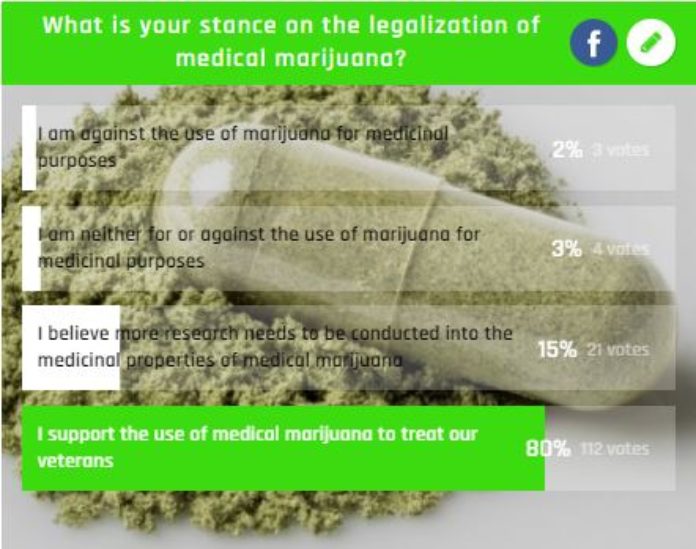INDIANAPOLIS – The American Legion, Department of Indiana passed a resolution Sunday, January 15, in support of medical marijuana research to treat common injuries sustained by today’s service members including Post Traumatic Stress and Traumatic Brain Injury.
This historic decision places Indiana’s largest veteran service organization of 81,500 Hoosier Veterans in support of urging the Indiana Legislator to approve the private growth and research of marijuana for medical purposes and to reduce and reclassify marijuana’s illegal drug status to, at a minimum, recognize cannabis as a drug with potential medical value.
“Our members have made the decision through the voting process to urge our state legislature to look into the benefits of medical marijuana in treating veteran related conditions like PTSD and TBI,” said Department of Indiana Cmdr. James B. May of Bloomington, Ind. “PTSD and TBI are the signature wounds of Post 9/11 veterans. We support the medical research of marijuana to find if there’s any alternative benefits to treating these conditions.
The Indiana Legion’s Executive Committee made up elected of leadership representing membership from across the state of Indiana passed the resolution with a majority vote at the Indiana Legion’s 2017 MidWinter Conference in Indianapolis.
The Indiana Legion is one of the first in the nation to move forward with such a resolution. This decision follows The American Legion, National Headquarters vote at the 98th National Convention held in Cincinnati, where delegates unanimously adopted Resolution 11 which urges the Drug Enforcement Agency to license and allow more private growth and research of cannabis, and Congress to move cannabis from the federal Drug Schedule I classification and reclassify it in a category that, at a minimum will recognize cannabis as a drug with potential medical value.
“We in no way condone the illegal use of marijuana or any other drug,” May said. “We are focused on bettering the lives of our fellow veterans, and we believe they are worth conducting the research.” May added that this decision comes in a crucial time for veterans as opioid-based painkillers have been prescribed heavily to veterans, resulting in addiction and drug abuse. Recent statistics from the Department of Veterans Affairs estimates 20 veterans commit suicide every day.
“If it helps one veteran, if it prevents one veteran from dying from prescription overdoses, or from becoming addicted to opioid based prescription drugs, then the research is worth it,” May said.





